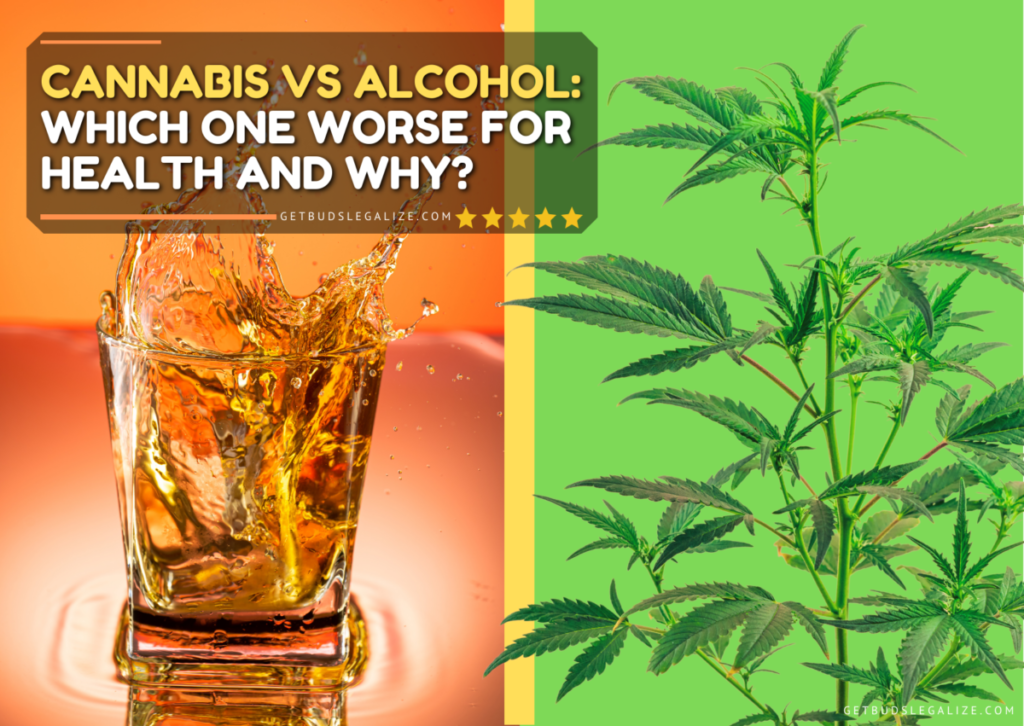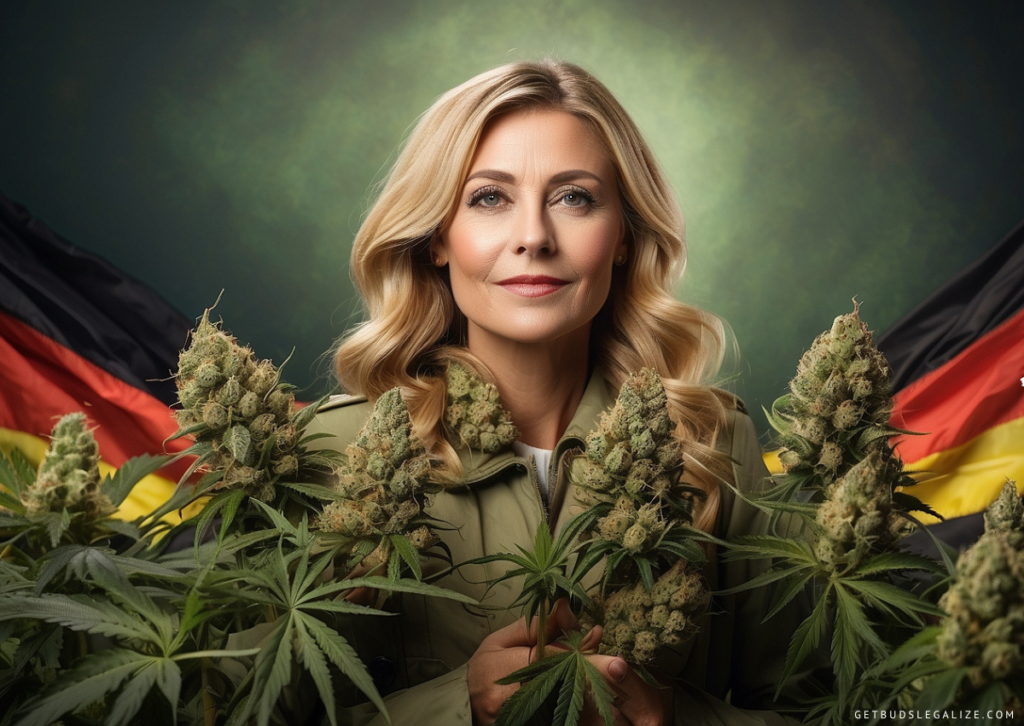10 Powerful Reasons Why Cannabis Should Be Legal Worldwide
What if a single plant, long demonized and outlawed, held the key to economic growth, pain relief, and social justice? Cannabis does exactly that. From reducing chronic pain to dismantling systemic inequalities, the benefits of legalization are clear and compelling.
So why is cannabis still illegal in so many parts of the world? The global debate over marijuana legalization is loud and polarized, but the data cuts through the noise. Evidence overwhelmingly supports a future where cannabis is legalized, regulated, and embraced as both a wellness tool and a social reform strategy.
With nearly 150 million people using cannabis annually, it remains the most widely consumed illegal substance worldwide. Public support for legalization is stronger than ever, yet outdated international drug policies continue to dominate lawmaking.
To move the conversation forward, let’s start with the basics—and then break down the 10 most powerful reasons marijuana should be legal across the globe.
Legalization vs. Decriminalization: What’s the Difference?
Understanding the difference between legalization and decriminalization is essential when discussing cannabis reform, especially as the terms are often confused.
Legalization means cannabis is fully legal under the law. This typically includes the cultivation, possession, sale, and use of marijuana for medical and/or recreational purposes. Legal cannabis markets are regulated by the government, with systems in place for product testing, taxation, and age restrictions, similar to alcohol or tobacco.
Decriminalization, however, does not make cannabis legal. Instead, it reduces or removes criminal penalties for possession or personal use. While marijuana remains illegal under the law, individuals caught with small amounts may face fines or civil citations, not jail time.
Why Is Cannabis Still Illegal?
Despite overwhelming evidence and growing support for cannabis reform, marijuana remains prohibited in many parts of the world. Why?
1. Upholding the Status Quo
Cannabis prohibition has been entrenched in global policy for nearly a century. This long-standing status quo benefits powerful interests—from pharmaceutical giants to private prison systems—and breeds political inertia. Even as public opinion shifts, many leaders resist change to avoid challenging established systems.
2. Prejudice and Racism
The origins of cannabis prohibition are steeped in xenophobia and racial discrimination. In the U.S., early laws targeted Mexican immigrants and African Americans, using cannabis as a pretext for social control. Media campaigns like Reefer Madness fueled fear and cemented harmful stereotypes that still linger today.
3. Misinformation and Exaggerated Claims
The debate around cannabis is clouded by extreme narratives on both sides. Advocates sometimes promote cannabis as a cure-all, while opponents amplify its risks. This polarization undermines credibility and blocks constructive policy reform. What we need is a balanced, evidence-based conversation.
4. The Medical Cannabis Taboo
Despite growing interest in cannabis as a therapeutic tool, decades of prohibition have hampered serious research. This has led to medical skepticism, regulatory hesitation, and public confusion. Legalization would open the door to robust, peer-reviewed studies—and ultimately, better health outcomes.
10 Reasons Cannabis Should Be Legal Worldwide
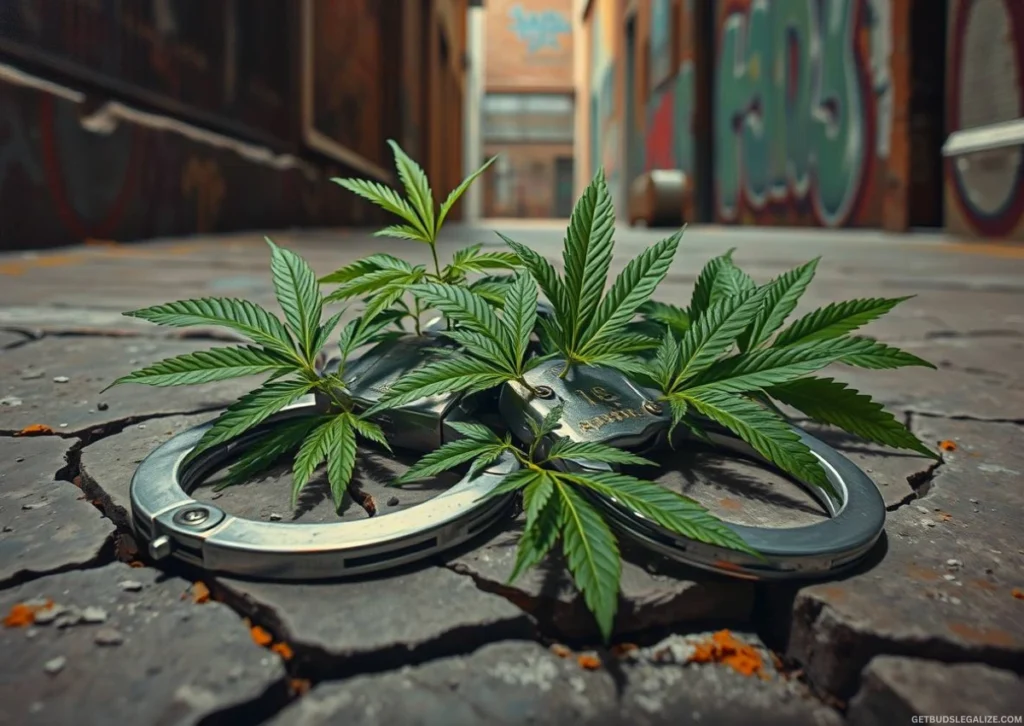
1. The War on Drugs Has Failed—Legalization Is a Smarter, More Effective Solution
For decades, global drug policy has focused on criminalizing cannabis rather than addressing its use through education, regulation, and harm reduction. The War on Drugs has cost governments billions, filled prisons with nonviolent offenders, and disproportionately affected marginalized communities—yet cannabis remains widely used.
The evidence is undeniable: prohibition hasn’t stopped people from using cannabis. Instead, it’s empowered illegal markets and fueled systemic injustice.
Legalizing cannabis removes it from the hands of criminals and places it under transparent, regulated systems. This shift improves safety, reduces unnecessary arrests, and frees up law enforcement to focus on real threats. Legalization is a proven, smarter path forward.
2. Cannabis Laws Disproportionately Harm Marginalized Communities
Cannabis prohibition has long been used as a tool of social control, especially in the United States. Black and Latino individuals are significantly more likely to be arrested for cannabis possession than white individuals, despite similar usage rates.
These racial disparities are not coincidental—they are baked into the history of drug enforcement. Legalizing cannabis is not just a public health issue; it’s a racial justice issue.
Reform must include automatic expungement of past convictions, reinvestment in communities harmed by the drug war, and equitable access to the legal cannabis industry for underrepresented groups.
✅ Did You Know? In the U.S., Black individuals face cannabis possession arrests at a rate 3.6 times higher than white individuals, even though both groups use cannabis at similar levels.
3. Legal Cannabis Markets Improve Consumer Safety and Public Health
In illegal markets, consumers have no way to verify what they’re using. Unregulated cannabis may contain harmful additives, mold, pesticides, or synthetic cannabinoids.
Legalization allows for strict product testing, accurate labeling, and consumer protection measures. It empowers users to make informed decisions, just like they can with food, alcohol, or pharmaceuticals.
When cannabis is legal, people are more likely to engage in responsible use, with access to safety guidelines, potency warnings, and educational resources. This reduces the risk of misuse, contamination, and unintentional harm.
✅ Fact Box: Legal cannabis in Canada must meet national safety standards, with mandatory lab testing and transparent labeling.
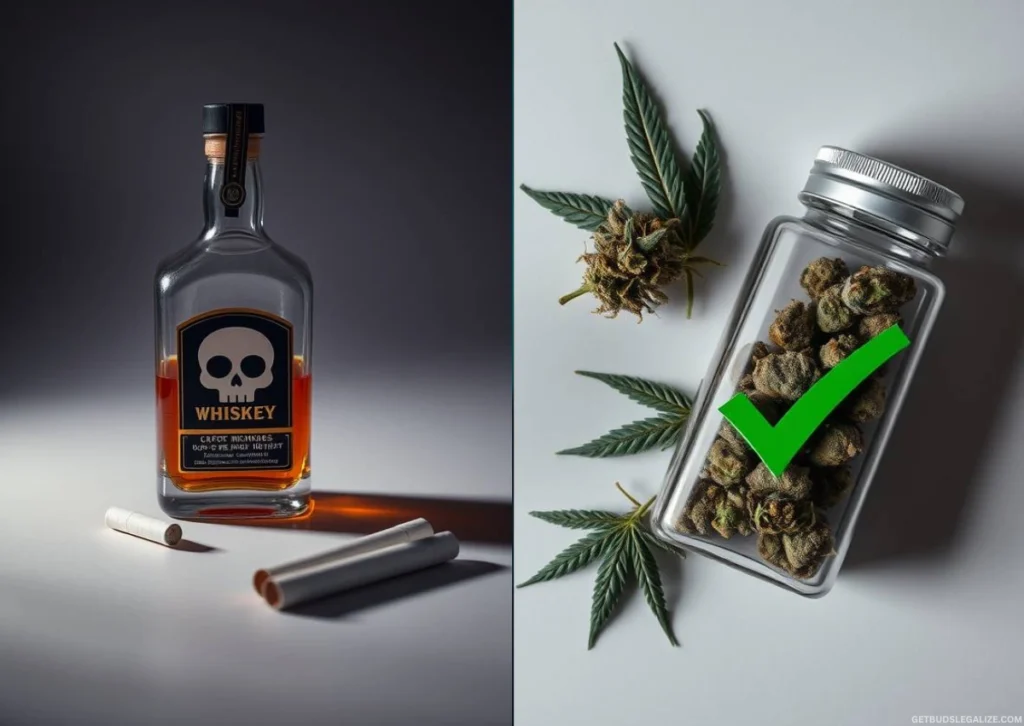
4. Cannabis Is Safer Than Alcohol and Tobacco—Yet Remains Illegal
Alcohol and tobacco—both legal and widely available—are responsible for millions of deaths each year. Alcohol is linked to liver disease, impaired judgment, traffic fatalities, and violence. Tobacco remains one of the leading causes of preventable death, contributing to cancer, heart disease, and respiratory illness.
Cannabis, by comparison, presents significantly fewer health risks. It has never caused a fatal overdose, has a lower potential for dependence, and its side effects are generally less severe.
Legalizing cannabis would bring public health policies in line with scientific reality. It empowers governments to regulate use responsibly, restrict access for minors, and encourage safer alternatives to more harmful substances. Simply put: the law should reflect the science.
✅ Comparison Snapshot
| Substance | Annual Global Deaths | Overdose Potential |
| Tobacco | 8 million+ | None |
| Alcohol | 3 million+ | High |
| Cannabis | 0 | Extremely low |
Related Article:
5. Adults Deserve the Freedom to Choose What They Put in Their Bodies
At its heart, cannabis legalization is about personal autonomy. Adults are trusted every day to make informed choices about substances like alcohol, nicotine, caffeine, and prescription medications—so why is cannabis treated differently?
Criminalizing responsible cannabis use is a paternalistic and outdated overreach. Legalization restores individual rights while still enabling public safeguards, such as age limits, impaired driving laws, and product regulations.
No one should face arrest, a criminal record, or social stigma for making thoughtful, peaceful decisions about their own body and well-being.
6. Legalizing Cannabis Boosts the Economy and Creates Jobs
Cannabis legalization has rapidly become one of the most powerful engines for economic growth. In countries and U.S. states with legal cannabis, the industry supports hundreds of thousands of jobs and generates billions in annual tax revenue.
This money funds schools, healthcare, transportation, and public safety. Legalization also fuels small business development, agricultural innovation, tourism, and sustainability projects—from hempcrete to bioplastics.
With proper regulation, cannabis can drive a green economy and build a more resilient future.

7. Youth Cannabis Use Does Not Increase After Legalization
A major concern among opponents is that legalization will increase cannabis use among teens. However, studies from Colorado, Washington, Canada, and Uruguay consistently show no rise in youth cannabis use—and in some cases, a decline.
Why? Because legal markets come with strict age restrictions, ID checks, and responsible retail practices, unlike the illicit market.
When young people are educated instead of misled, and when access is regulated instead of forbidden, the results are clear: legalization protects youth better than prohibition ever could.
8. Cannabis Legalization Helps End the Stigma
For decades, cannabis users have been labeled as lazy, irresponsible, or criminal. These stereotypes—born from propaganda and racial bias—have harmed patients, professionals, veterans, and everyday citizens.
Legalization offers a chance to replace fear with facts. It promotes open dialogue, scientific research, and public education. In legal regions, cannabis use is becoming normalized, and users no longer feel forced to hide or feel ashamed.
Breaking the stigma improves access to care, supports mental health, and fosters a more compassionate and informed society.
9. Prohibition Has Blocked Cannabis Research for Decades
Decades of prohibition haven’t just criminalized cannabis—they’ve choked scientific progress. In many countries, cannabis remains a controlled substance, making it extremely difficult for researchers to access, study, and understand.
This legal red tape has delayed breakthroughs in treating conditions like epilepsy, PTSD, chronic pain, and more. Medical professionals are left with unanswered questions, while patients miss out on potentially life-changing therapies.
Legalization removes these barriers, opening the door to large-scale, peer-reviewed research. It empowers scientists to explore both the benefits and the risks of cannabis, based on data, not outdated dogma.
✅ Global Example: Israel leads the world in cannabis research, thanks to progressive regulations and direct government support for clinical trials.
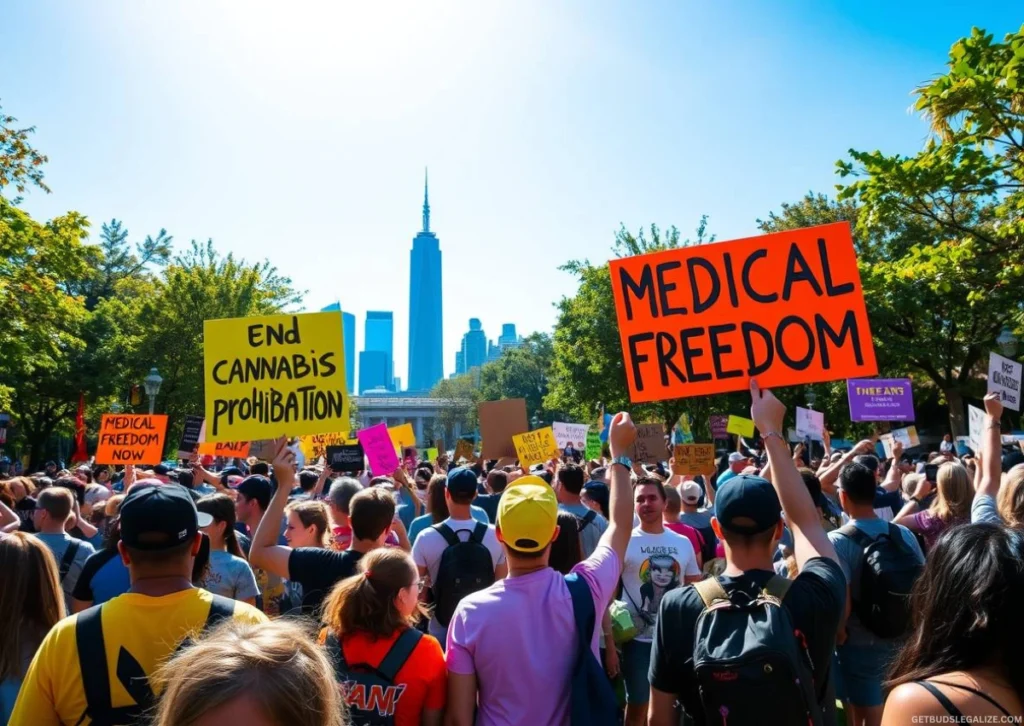
10. The Majority Supports Legalization—It’s Time the Laws Caught Up
Public opinion has changed drastically in recent decades. In many countries, a majority now supports cannabis legalization. In the U.S., over 90% of adults support cannabis in some legal form—medical or recreational.
Yet laws in many places lag behind this overwhelming consensus. In a healthy democracy, public policy must reflect the will of the people. Cannabis legalization isn’t just a policy shift—it’s a recognition of progress, logic, and the voice of the majority.
✅ Did You Know? Germany legalized cannabis for adult possession and home cultivation in 2024, reflecting majority’s public support.
Related Article:
Final Thoughts: A Global Cannabis Future Is Within Reach
The evidence is overwhelming. The global war on cannabis has failed to reduce harm, protect youth, or promote health. Meanwhile, legalization has proven benefits: economic growth, improved public safety, medical access, and greater personal freedom.
We stand at a crossroads. Will we continue outdated, unjust policies? Or embrace a smarter, more compassionate path?
It’s time to legalize cannabis, not just in some countries, but everywhere.
Do you think your country is ready for cannabis legalization? Share this post, start a conversation, and advocate for change in your community.
Frequently Asked Questions (FAQs) about Reasons Why Marijuana Should Be Legal for Adults
Medical marijuana is prescribed by healthcare professionals to treat specific conditions like chronic pain, epilepsy, and PTSD. It is regulated for safety, dosage, and medical supervision.
Recreational marijuana is used by adults purely for personal enjoyment without a prescription. Both types benefit from full legalization, which ensures access, safety, and consistent regulation under the law.
Decriminalization removes criminal penalties like jail time for possession but keeps cannabis technically illegal, leaving users exposed to fines and systemic bias.
Legalization goes further by creating regulated markets, ensuring product safety through testing and labeling, generating tax revenue, and supporting criminal justice reforms such as reducing arrests and expunging past convictions.
Yes. Legal recreational marijuana improves public safety by replacing unregulated street products with lab-tested, clearly labeled cannabis. Legal markets promote responsible use, enforce age restrictions, and fund public education programs—helping reduce harm rather than increase it.
No. Research from Canada, Colorado, and other legal markets shows no significant increase in teen cannabis use following legalization. Regulated markets enforce strict age verification and provide education, which is more effective than prohibition in protecting youth.
Legal marijuana fuels economic growth by creating thousands of jobs, attracting investments, and generating billions in tax revenue. It supports multiple industries such as agriculture, retail, wellness, and green technology.
Tax funds from cannabis sales help finance schools, infrastructure projects, and public health initiatives.
In many cases, yes. Medical cannabis is effective for managing pain, inflammation, anxiety, and seizures. Legal access promotes further scientific research and innovation, which has been hindered by outdated policies. Legalization opens new doors for patients and advances healthcare options.
Marijuana prohibition is rooted in decades of racism, misinformation, and political resistance. Despite growing public support worldwide, many governments resist change due to stigma, fear, or vested economic interests tied to prohibition. However, global reform is steadily progressing.
Yes. Cannabis has no recorded overdose deaths and a lower addiction risk compared to alcohol and tobacco, which cause millions of deaths worldwide. Legalizing marijuana aligns public health policy with scientific evidence and can reduce harm caused by more dangerous substances.
Cannabis laws have disproportionately targeted marginalized communities, contributing to mass incarceration. Legalization reduces arrests for minor offenses, clears past convictions, and reallocates law enforcement resources to more serious crimes, advancing equity and justice.
Countries like Uruguay, Canada, Germany, and Thailand have legalized marijuana for medical and/or recreational purposes. These nations demonstrate how legalization can improve public health, boost economies, and reflect modern social values. The global movement toward cannabis reform is gaining momentum.
Medical marijuana should be legalized because it offers safe, effective treatment options for a variety of chronic and debilitating conditions. Legal access ensures patients receive quality-controlled products under medical supervision, reduces reliance on opioids and other pharmaceuticals, and enables vital scientific research.
Legalization also helps eliminate stigma, improving patient access and healthcare outcomes worldwide.
ILGM Fertilizer:
Feed Your Plants Right

The Ultimate Cannabis Fertilizer – designed to fuel every stage from seedling to harvest.
✅ Feeds 5+ plants
✅ Big savings with bundle
✅ Works in soil, coco, or hydro
✅ Supports bigger, healthier yields
ILGM Plant Protector:
Ultimate Cannabis Protection

Shield your plants from pests and disease—naturally and effectively.
Protect From Seedling to Harvest
✅ Protects up to 20 plants
✅ Works in soil, coco, or hydro
✅ Fights pests & diseases fast
✅ Keep your grow healthy & stress-free








